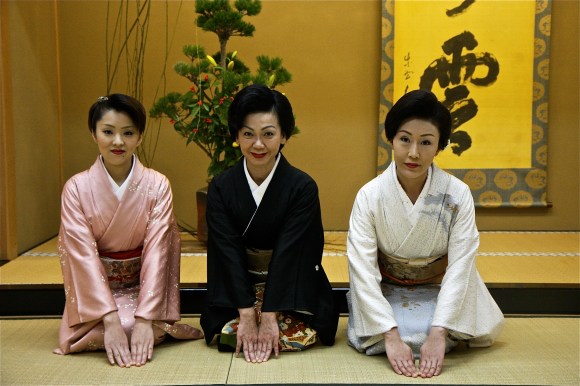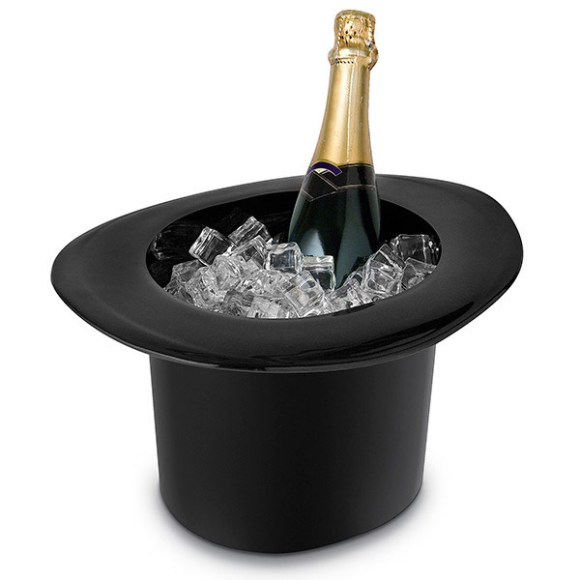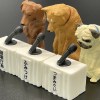
During my high school years, I worked in a supermarket, where an announcement over the loudspeaker system for “Code 19” always meant it was time to head to the staffroom for a cup of tea. Just like my clever supervisor, many service industry workers have developed their own set of code words that they use to communicate without letting the customers know too much about what’s really going on.
But thanks to this list of the secret keywords used by hotel staff in Japan, next time you’re in a Japanese hotel you can prick up your ears and listen out for any exciting gossip going on amongst the employees! Just for fun, have a look at this list first and see if you can guess what they mean. What would obake, nō-shō, aidoru taimu, chirashi, donden, and sukippā mean in a hotel context?
Some of you may have guessed that some of those words come from English, but let’s begin with the spookiest and most exciting of the lot:
1) Ghost (“obake“)
A customer who turns up at the hotel insisting they have a reservation, although they haven’t actually made one.
Sometimes, a Ghost might be just trying their luck; or they might have actually made a reservation, but gone to the wrong hotel by mistake.
▼ A customer without a booking is probably the best kind of ghost to find in your hotel, anyway.

2) No-Show (“no-shou“)
The opposite of a ghost. A customer who reserves a room but never turns up.
A loan word that sticks with the original English meaning! A Ghost customer who turns up on the off-chance there’ll be a room available is also called a “go show” (“go-shou” in Japanese).
3) Idle Time (“aidoru-taimu“)
Time spent hanging around when there’s nothing to do.
Sounds like a Code 19 situation to me! In English we helpfully have a variance in spelling to help us differentiate between the two words “idol” and “idle”. The Japanese, with their blissfully simple phonetic system, are not so lucky in this case. Pity the poor individual who thought a bunch of cute young singers in skimpy outfits were coming to entertain them for “idol time”!
▼ An excellent use of idle time.

4) “Chirashi”
Small tables arranged around the main table at a buffet, usually for glasses or tableware.
“But I thought chirashi meant leaflet?!” I hear you cry. Well, “chirashi” (散らし) means a scattering of things: in this case, tiny tables sprinkled around a room. Just like pamphlets that have blown away in the wind after some idling employee put them down instead of handing them out.
▼ “Scattered sushi” didn’t sound too appealing either, so they named it chirashi-zushi instead.

5) “Donden”
As soon as one party finishes, having to clean up the room and prepare for the next booking.
This lovely-sounding word (try saying it out loud a couple of times!) comes from dondengaeshi, a complete plot twist at the end of a kabuki play. At wedding reception venues or during end-of-year party season, several groups will be using one venue in swift succession, so it’s “all change” as hotel staff work quickly to get everyone in and out as quickly as they can.
6) “Aisu peiru”
When an item or product is introduced to Japan from abroad, instead of giving that word kanji characters, the original word is often imported too (albeit in Japanese pronunciation which may be amusingly incomprehensible to people who don’t speak Japanese). For some reason Japan has decided that it sounds more sophisticated and generally cooler to call an ice bucket an “ice pail”. I guess “bucket” doesn’t really have wonderful connotations, if you think about it.
▼ This is not a bucket.

7) Skipper (“sukippā”)
Someone who sneaks out in the morning without paying the hotel bill.
Japanese hotel staff use another handy English loan word to refer to the kind of dastardly scoundrel who skips out without even stopping to say goodbye to the friends they made on the front desk, let alone return their key and settle the check. We wonder if they did actually skip across the lobby as they left…
Have you worked in a hotel or other business that used these kind of code words? Which ones are the weirdest and funniest? Are any that are too well-known to be effective as secret words? Let us know in the comments!
Source: Niconico News
Top image: Tomostyle

 Japanese hotel guest leaves pile of erotic manga out, gets pleasant surprise from cleaning staff
Japanese hotel guest leaves pile of erotic manga out, gets pleasant surprise from cleaning staff Ghibli’s Kiki’s Delivery Service returns to theaters with first-ever IMAX screenings and remaster
Ghibli’s Kiki’s Delivery Service returns to theaters with first-ever IMAX screenings and remaster Japan has only one airport named after a samurai, so let’s check out Kochi Ryoma【Photos】
Japan has only one airport named after a samurai, so let’s check out Kochi Ryoma【Photos】 Starbucks Japan adds new sakura Frappuccino and cherry blossom drinks to the menu
Starbucks Japan adds new sakura Frappuccino and cherry blossom drinks to the menu Is Oni Koroshi sake in a drink box wino fuel or a hidden gem?
Is Oni Koroshi sake in a drink box wino fuel or a hidden gem? Family Mart’s Shibuya Cat Street shop hosts first-ever rescue cat photo exhibition for Cat Day
Family Mart’s Shibuya Cat Street shop hosts first-ever rescue cat photo exhibition for Cat Day A fun and cheap souvenir for kids: 100-yen shop play money featuring Japan’s brand-new yen bills!
A fun and cheap souvenir for kids: 100-yen shop play money featuring Japan’s brand-new yen bills! The 10 best manga to read in 2022, as recommended by Japanese bookstores
The 10 best manga to read in 2022, as recommended by Japanese bookstores Cats and dogs apologising at Japanese press conference is our newest gacha capsule toy obsession
Cats and dogs apologising at Japanese press conference is our newest gacha capsule toy obsession This overlooked neighborhood east of Tokyo is awesome in many ways, left us with just one regret
This overlooked neighborhood east of Tokyo is awesome in many ways, left us with just one regret Japan’s newest weird capsule toys are…super realistic capsule rocks?!?【Photos】
Japan’s newest weird capsule toys are…super realistic capsule rocks?!?【Photos】 The 10 most annoying things foreign tourists do on Japanese trains, according to locals
The 10 most annoying things foreign tourists do on Japanese trains, according to locals Starbucks Japan releases new sakura goods and drinkware for cherry blossom season 2026
Starbucks Japan releases new sakura goods and drinkware for cherry blossom season 2026 Is Sapporio’s Snow Festival awesome enough to be worth visiting even if you hate the snow? [Pics]
Is Sapporio’s Snow Festival awesome enough to be worth visiting even if you hate the snow? [Pics] Japan has trams that say “sorry” while they ride around town…but why?
Japan has trams that say “sorry” while they ride around town…but why? Tokyo Skytree turns pink for the cherry blossom season
Tokyo Skytree turns pink for the cherry blossom season Highest Starbucks in Japan set to open this spring in the Tokyo sky
Highest Starbucks in Japan set to open this spring in the Tokyo sky Japan’s new “Cunte” contact lenses aren’t pronounced like you’re probably thinking they are
Japan’s new “Cunte” contact lenses aren’t pronounced like you’re probably thinking they are Shibuya Station’s Hachiko Gate and Yamanote Line stairway locations change next month
Shibuya Station’s Hachiko Gate and Yamanote Line stairway locations change next month Yakuzen ramen restaurant in Tokyo is very different to a yakuza ramen restaurant
Yakuzen ramen restaurant in Tokyo is very different to a yakuza ramen restaurant Japan’s newest Shinkansen has no seats…or passengers [Video]
Japan’s newest Shinkansen has no seats…or passengers [Video] Foreigners accounting for over 80 percent of off-course skiers needing rescue in Japan’s Hokkaido
Foreigners accounting for over 80 percent of off-course skiers needing rescue in Japan’s Hokkaido Super-salty pizza sends six kids to the hospital in Japan, linguistics blamed
Super-salty pizza sends six kids to the hospital in Japan, linguistics blamed Starbucks Japan unveils new sakura Frappuccino for cherry blossom season 2026
Starbucks Japan unveils new sakura Frappuccino for cherry blossom season 2026 Foreign tourists in Japan will get free Shinkansen tickets to promote regional tourism
Foreign tourists in Japan will get free Shinkansen tickets to promote regional tourism Take a trip to Japan’s Dododo Land, the most irritating place on Earth
Take a trip to Japan’s Dododo Land, the most irritating place on Earth Naruto and Converse team up for new line of shinobi sneakers[Photos]
Naruto and Converse team up for new line of shinobi sneakers[Photos] Is China’s don’t-go-to-Japan warning affecting the lines at a popular Tokyo gyukatsu restaurant?
Is China’s don’t-go-to-Japan warning affecting the lines at a popular Tokyo gyukatsu restaurant? Survey asks foreign tourists what bothered them in Japan, more than half gave same answer
Survey asks foreign tourists what bothered them in Japan, more than half gave same answer Japan’s human washing machines will go on sale to general public, demos to be held in Tokyo
Japan’s human washing machines will go on sale to general public, demos to be held in Tokyo Starbucks Japan releases new drinkware and goods for Valentine’s Day
Starbucks Japan releases new drinkware and goods for Valentine’s Day We deeply regret going into this tunnel on our walk in the mountains of Japan
We deeply regret going into this tunnel on our walk in the mountains of Japan Studio Ghibli releases Kodama forest spirits from Princess Mononoke to light up your home
Studio Ghibli releases Kodama forest spirits from Princess Mononoke to light up your home Major Japanese hotel chain says reservations via overseas booking sites may not be valid
Major Japanese hotel chain says reservations via overseas booking sites may not be valid Put sesame oil in your coffee? Japanese maker says it’s the best way to start your day【Taste test】
Put sesame oil in your coffee? Japanese maker says it’s the best way to start your day【Taste test】 No more using real katana for tourism activities, Japan’s National Police Agency says
No more using real katana for tourism activities, Japan’s National Police Agency says